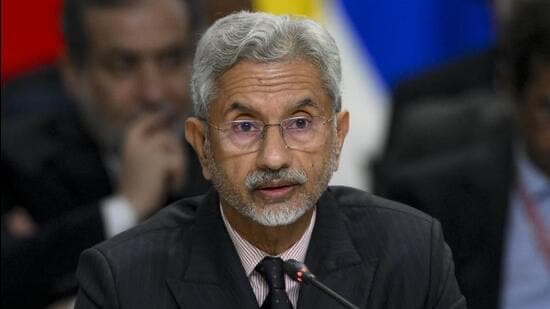The Quad is growing and one of the most expansive mechanisms for inter-governmental coordination, Jaishankar said. US President-elect Donald Trump is unlikely to diminish support for the Quad as his earlier administration played a key role in upgrading the grouping, external affairs minister S Jaishankar said on Friday.
The Quad, which brings together India, Australia, Japan and the US, is growing and one of the most expansive mechanisms for inter-governmental coordination, Jaishankar said at the India-Japan Forum. The Quad was revived in 2017, during Trump’s first term as president, and the American leader deserves a lot of credit for the grouping taking off in its second incarnation, he said. “In 2017, it was the first year of the Trump administration when it started at the vice minister’s level. Then, in 2019, it was again under the Trump administration that it moved from the vice minister’s level to the foreign minister’s level,” he said.
“And there is every reason for us to expect that, they would say we got it right the first time, it’s done well and therefore, we should keep with it.”Referring to Trump’s views about the partners of the US sharing the burden in alliances, Jaishankar said that “those arguments actually don’t apply to the Quad at all because the Quad is a kind of ‘everybody pays their fair share’”.
Trump secured a second term as US president after a decisive victory over his Democratic rival Kamala Harris. He will be sworn in as president in January.Jaishankar responded to a question on a narrative in Japan about India being the weak link in the Quad by saying the four countries in the grouping could agree and disagree on certain matters.
“In our country…people have said Japan is the weak link at times… And remember… in the initial round of Quad, we felt the Australians pulled the plug on Quad and the Australians felt they should pull the plug before we pulled the plug on Quad,” he said. The Quad, Jaishankar said, is growing and its agenda makes it “one of the most expansive sort of inter-governmental coordination that is today in evidence”.
India is set to host the next Quad Summit in 2025.
Jaishankar said in response to another question that India and Japan had shared experiences because of their proximity to China. “In our particular case, we had a stable relationship with China…In terms of trade, it was very, very substantial and still is very substantial…There were some issues we have which is a very imbalanced trade. We have had a lot of market access issues in China,” he said.
The standoff on the Line of Actual Control (LAC) that began in 2020 impacted the overall relationship. “Our entire relationship with China was predicated on the fact that the border areas would remain peaceful and stable and we had agreements to ensure that. In 2020, the Chinese chose to bring a lot of forces to the border areas and obviously, we responded with counter-deployments,” he added.
It took the two sides four-and-a-half years to negotiate the disengagement of forces, and challenges remain with regard to de-escalation on the LAC. “We still have challenges left with us. We still have to de-escalate because what we have done is disengage forces from close proximity but we have a de-escalation because there’s still a very large number of forces…Now, we have to sit down and discuss with China how we rebuild our relationship and that is an exercise that still has to be undertaken,” he said.
Jaishankar also pointed to the potential for collaboration between India and Japan in semiconductors and the significance of the sector in reshaping global geopolitical dynamics.Both countries are ramping up their semiconductor industries and working with Taiwan, paving the way for a transformative partnership in this crucial field.
“Japan is revitalising its semiconductor sector, and India, after a very long period of neglect, has announced a semiconductor mission… It is interesting that both of us also happen to be working with Taiwan. I’m seeing the beginnings of something potentially important here, and potentially really significant for both countries,” he said.



